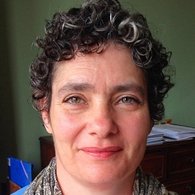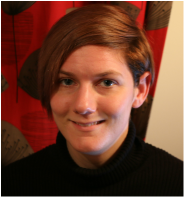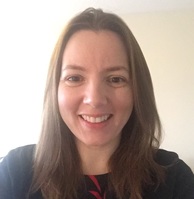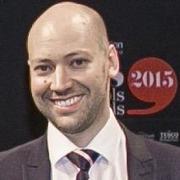@inquirymaths
Inquiry maths and mixed attainment classes
Inquiry Maths is a model of learning mathematics that was devised and developed in mixed attainment classrooms. It encourages students to regulate their own activity while exploring a prompt. An Inquiry Maths lesson starts with students' questions and conjectures and might involve a class, for example, on diverse pathways of exploration or in seeking an explanation. The unity of purpose within an inquiry guarantees inclusiveness, cohesion and equity as all contributions add to the findings of the class. Participants at the workshop will experience the excitement, unpredictability and creativity of classroom inquiries. @zebfriedman
Can mixed attainment classes work at KS4?
In my workshop I’d like to share some revision approaches that worked for me when teaching a class of 50 mixed attainment learners in year 11, sitting Foundation and Higher tier exams. And what a troop of ten actors had to do with it! @LMPeters16
Open - Ended Assessment
In this workshop I will share resources and strategies to using open-ended assessments in place of more standard book-test and Standardized tests. @JeremyHodgenWhy teach in mixed attainment classes? Lessons from research.
I will discuss why and how to teach in mixed attainment groups with a particular focus on research evidence. I will draw on the work and award-winning materials of the Best Practice in Grouping Students study. |
@MichaelOllerton
Task design to develop units of work with all-attainment groups for differentiated learners in inclusive classrooms
This will be an active, problem-solving workshop focusing on the issues of task design. Issues of differentiated learning and "mathematics for all" will be considered. @HelenHindle1
Practical approaches for teaching mixed attainment maths classes
In this workshop I will share resources and strategies that I have used with mixed attainment classes and discuss the impact of these on student engagement and attitudes towards mathematics. I will also explain how I use Learning Journeys to support students to select tasks at an appropriate level of challenge. Participants will be given opportunities to collaboratively create differentiated activities for use in the classroom. @DrAaronTurner
Mixed attainment classes. Can we level the playing field?
There are many factors that influence people's performance in different environments. School is one of those environments. An environment in which some people operate better than others. Often this experience can stay with people for years. For the past 17 years Aaron Turner has been focussed on the link between state of mind and performance. He has found that there is a generally unrecognised potential for improved engagement, learning and attainment through a focus on state of Mind. In the session Aaron will outline how state of mind effects engagement, learning and attainment. How and why an understanding of State of Mind leads to these improvements and he will open up the session to discuss how this might be used to support and develop learning and attainment in a mixed attainment class room setting. |
@TFrancome
"They always start with the reds": Equitable alternatives to differentiation by task in mixed-attainment mathematics classrooms
Differentiation by task is increasingly common in classrooms, often with such practices encouraged by school policies. In this session we will work on activities that afford students an opportunity to think about and engage with mathematics. As a Head of Mathematics Tom developed an innovative approach with his department, teaching mathematics to mixed-attainment groups in all years through rich, problem-solving tasks. The key aim being for every student to develop as a mathematician and a key philosophy being the belief that every pupil can develop as a mathematician through hard work and effort. Tom’s approach was recognised nationally when his department won the TES Award for 'Maths Team of the Year 2015'. The tasks we will work with are focused on geometry and designed to be accessible but with challenge for all so those we work on in the session may be useful, whatever groups you teach. @mhorley
Differentiation is not a dirty word
This session will seek to explore how to challenge the thinking of all learners in a mixed attainment setting and keep everyone learning. We will look at how mastery approaches that emphasise the whole class moving forward together work in practice when you have learners who may be at different starting points. @Sam_Hoggard
Equations and Trigonometry
Participants will be invited to work on tasks and then consider the teaching of equations and trigonometry to mixed attainment classes. An approach to teaching these topics will be shared along with resources. @beyondlevels
This conference is being planned in association with @beyondlevels #LearningFirst.
#LearningFirst is a community of colleagues from across the education spectrum, with an interest in, and a positive agenda for change in assessment practice, who share and learn from each other |












